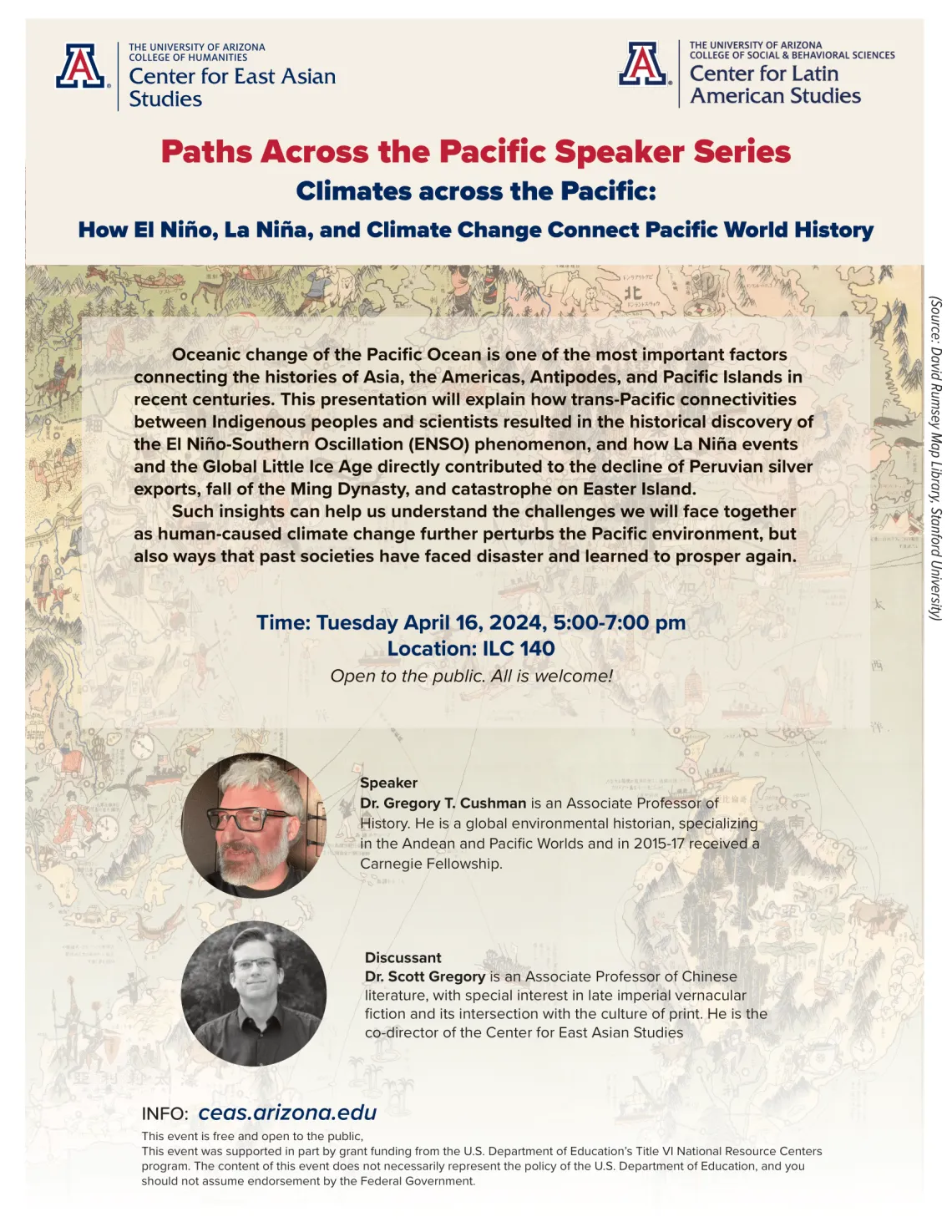
When
Where
Please join CLAS and CEAS for the Paths Across the Pacific Speaker Series:
"Climates across the Pacific: How El Niño, La Niña, and Climate Change Connect Pacific World History" presented by Dr. Gregory Cushman
Time: Tuesday April 16, 2024, 5:00-7:00 pm
Location: ILC 140
The Pacific Ocean is the single largest geographical feature on planet Earth, and has a proportionally large influence on climate. Oceanic change is one of the most important factors connecting the histories of Asia, the Americas, Antipodes, and Pacific Islands in recent centuries. This presentation will explain how trans-Pacific connectivities between Indigenous peoples and scientists resulted in the historical discovery of the El Niño-Southern Oscillation (ENSO) phenomenon, and how La Niña events and the Global Little Ice Age directly contributed to the decline of Peruvian silver exports, fall of the Ming Dynasty, and catastrophe on Easter Island. Such insights can help us understand the challenges we will face together as human-caused climate change further perturbs the Pacific environment, but also ways that past societies have faced disaster and learned to prosper again.
Speaker:
Dr. Gregory T. Cushman is an Associate Professor of History and recently joined the University of Arizona faculty. He is a global environmental historian, specializing on the Andean and Pacific Worlds and in 2015-17 received a Carnegie Fellowship. His works include the multi award-winning Guano and the Opening of the Pacific World: A Global Ecological History (2013; expanded Spanish ed. 2019) and “Ecologies of Resilience: The Many Colonizations of Rapa Nui (Easter Island, 1200CE-present), which will appear in The American Historical Review in October.
Discussant:
Dr. Scott Gregory is a scholar of Chinese literature, with special interest in late imperial vernacular fiction and its intersection with the culture of print. His book Bandits in Print (Cornell University Press) concerns different print manifestations of the sixteenth-century work The Water Margin (Shuihu zhuan) and the reading practices surrounding them. He has also published on how novels of the Ming Dynasty conceived of their own historical era. He obtained his PhD from Princeton University in 2012. Before coming to Arizona, he spent two years as a visiting fellow at the National University of Singapore. He has also lived in Taipei and Kyoto. Dr. Gregory is also co-director of the Center for East Asian Studies along with Dr. Wenhao Diao.
This event is free and open to the public. All is welcome!

